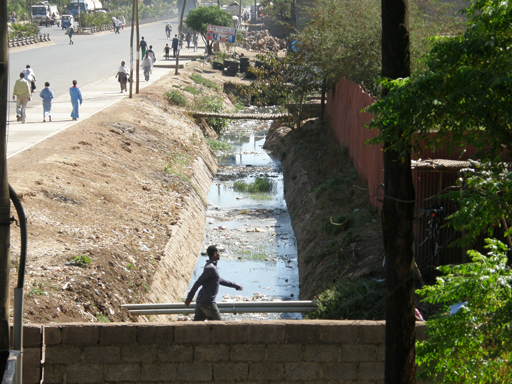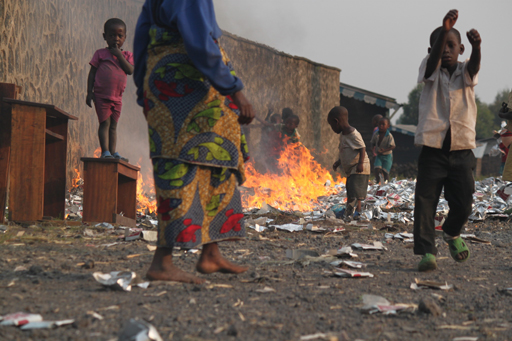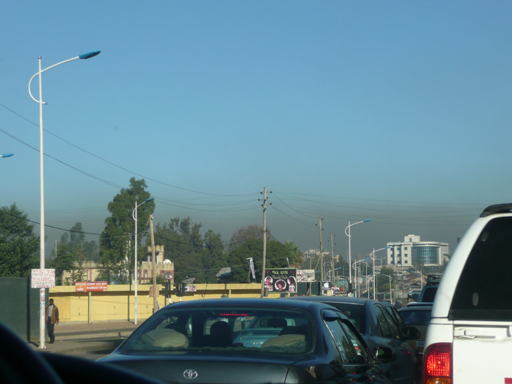5.3.3 Wastes and pollution
Urbanisation affects land, water, air and wildlife because of the number of people, the amount of buildings and construction, and the increased demands on resources. It has impacts on the physical environment in several ways.
Water quality
In developing countries, including Ethiopia, many rivers in urban areas are more like open sewers (Figure 5.6). The lack of sanitation and sewerage systems has a dramatic impact on urban watercourses. People use the rivers to dispose of all their wastes from homes, industries and commercial businesses. Wastewater from human settlements contains organic material and nutrients; industrial wastewater contains many different types of toxic pollutant. These make the water unsafe for humans to use for many purposes including drinking and irrigation, as well as harming the fish and other animals and plants living in the water. Any changes to the quality of surface water also affects groundwater because they are linked by the processes of the water cycle so pollutants from the surface will infiltrate down and contaminate soil and groundwater as well.

Solid waste
In many towns and cities solid waste management is inefficient or non-existent. Solid waste management means the proper collection, transfer, recycling and disposal of all the solid material we throw away, including plastics, paper and cardboard, food wastes, electrical waste, etc. It also includes industrial, hospital and institutional wastes which often contain pathogens as well as hazardous and toxic chemicals, which need special care.
Urban waste often ends up in illegal dumps on streets, open spaces, wastelands, drains or rivers. This is frequently a problem in peri-urban areas, which are convenient for dumping wastes because of the availability of open space and ease of access from central urban areas. This can lead to the pollution of groundwater and surface waters which may be used as a source for drinking water. Sometimes the wastes are collected and taken to legalised waste disposal sites but these are not always properly managed to protect water bodies and groundwater.
The combustion of solid waste creates yet another environmental problem. People want to get rid of the wastes and they will burn them in their backyards if there is no collection system (Figure 5.7).

Air quality
Air quality in towns and cities is frequently very poor as a result of air pollution from many different sources (Figure 5.8). These include:
- vehicle exhausts
- smoke from domestic fires
- outputs from factory chimneys
- diesel-powered generators
- dust from construction works and city streets.
Poor air quality has a significant impact on the health of many urban residents as well as leaving a damaging and unsightly layer of dust on plants, buildings and other surfaces.

5.3.2 Water supply and sanitation
